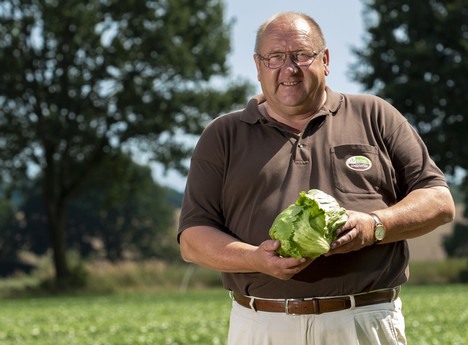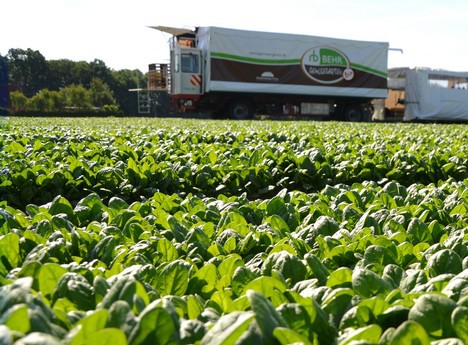2021 will be remembered as quite challenging for vegetable growing: The wet summer, the ongoing Corona problem and -last but not least- the continuing rise in production costs are making things extremely difficult for growers in some cases. We spoke to Rudolf Behr, CEO of one of the largest vegetable growing and trading companies in Germany, about challenges and opportunities in the vegetable sector.
Rainfall and heavy rains led to water damage in several growing regions in Germany this year. However, BEHR AG escaped with a black eye, Mr. Behr said." We have not had any water damage in our operations and therefore have had a normal earnings situation. Demand was slightly higher due to water damage in other areas. Occasionally, there were shortages."

Rudolf Behr, CEO of Behr AG
In the future, Behr said bottlenecks should be expected more frequently, as crop growth and consumer behavior are rarely in balance. "You can no longer afford a quantitative surplus in cultivation for economic reasons. There is no longer a free market that can absorb excess quantities. The flexibility of food retailers is limited to react spontaneously to excess quantities in a promotional way. The prices achieved in normal business do not provide air to bear destruction costs. So things are bound to get tight at times."
Acreage reduction in Spain in favor of Mar Menor
Meanwhile, harvesting at BEHR AG's Spanish site is now in full swing. "Many Spanish growers have not been making money for years. They have come up with a lot to keep their operations going. There were also some cost reductions that did not comply with the applicable law. This is now hitting many farms hard," Behr explains. The mood is decidedly poor, he says, and yields are not abundant. "Depending on the weather, there will be increased bottlenecks. The discussion about the Mar Menor [pollution caused by intensive agriculture, red.] will lead to a reduction in acreage in the medium term."
Corona-related sales increase in food retailing
Despite the ongoing pandemic, the second Corona year was not quite as extreme as the first year, says Mr. Behr, looking back. "The strong increase in purchasing volume at retail from the first Corona year could not be topped either. All the retail companies have seen sales increases, especially the full-line distributor. Since we have few gastronomers as customers, we are not affected by the Corona crisis, but rather benefited from it. Increased hygiene costs and group quarantine costs were absorbed."

Organic spinach harvest
Organic vegetables on the rise
In the shadow of the Corona issue and weather extremes, demand for organic vegetables continues to rise. "Supply is going more broadly and therefore overall volume is increasing. Within the crops grown, growth is manageable. If the programs of the European Commission, the Parliament and the German government in the organic sector are realized, there will be upheavals in the farms," says BEHR AG.
In order to generate larger groups of buyers, the price level for organic vegetables will have to drop considerably, says Rudolf Behr. "The current farm structure in the organic sector will not survive that. Only powerful, highly mechanized large farms will dominate the market. You should plan for that in time. Organic associations in particular have the problem of selling the bitter pill to members."
Structural change in vegetable farming
Vegetables continue to be a trendy product, Behr continues, pointing to today's structural changes. "Costs are going to go up. This affects inputs, energy and labor costs. Only through mechanization and automation can costs be reduced. However, this also means sufficient production sizes to utilize the technology employed. The food retail industry will increasingly serve itself directly from the producer. The scales involved in production also allow for this."
For more information:
Patricia Klünder
BEHR AG
Parkstraße 2
21220 Seevetal - Ohlendorf
Tel.: +49 (0) 4185 - 79 77 731
Fax: +49 (0) 4185 - 79 77 739
E-Mail: [email protected]
Internet: www.behr-ag.com
